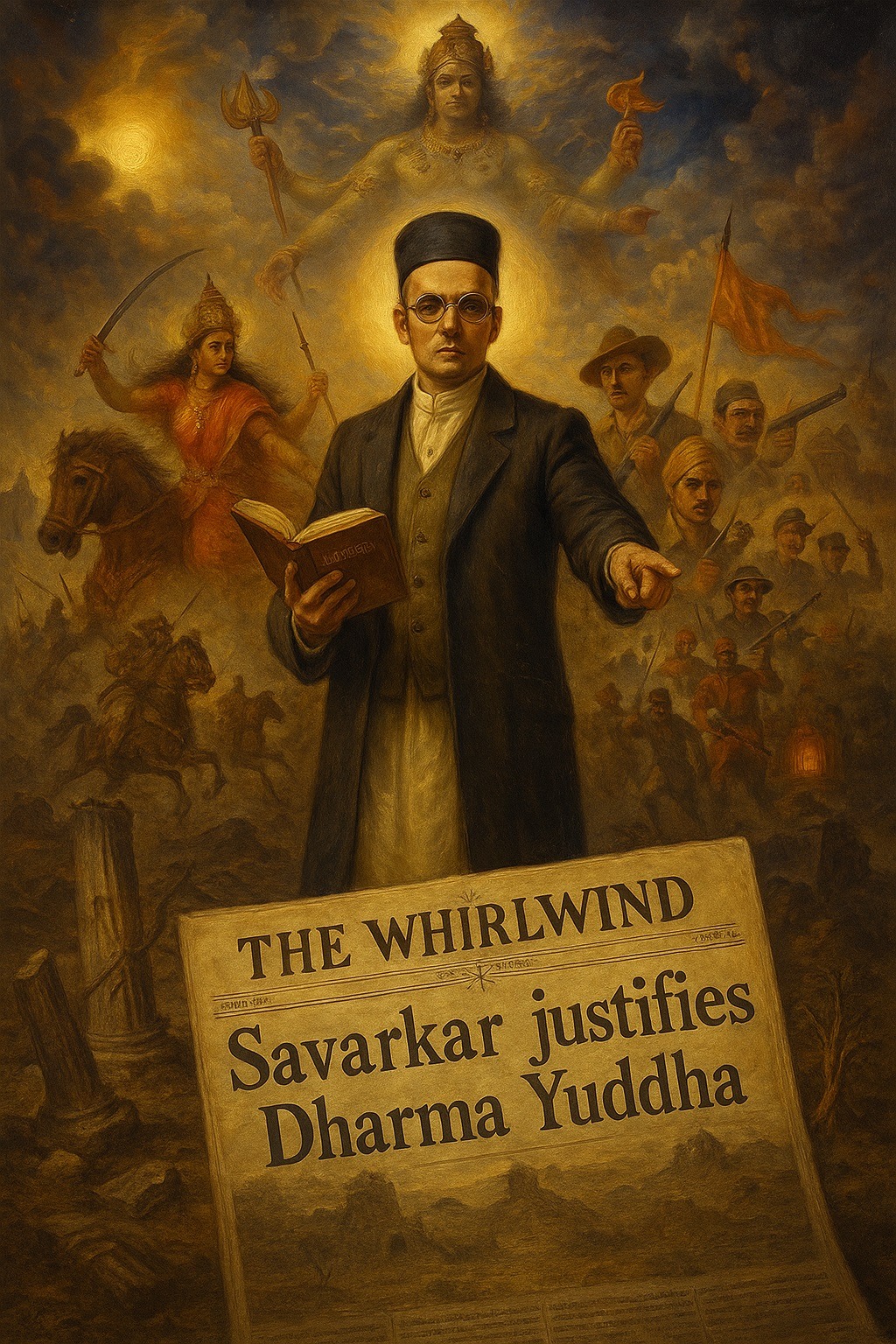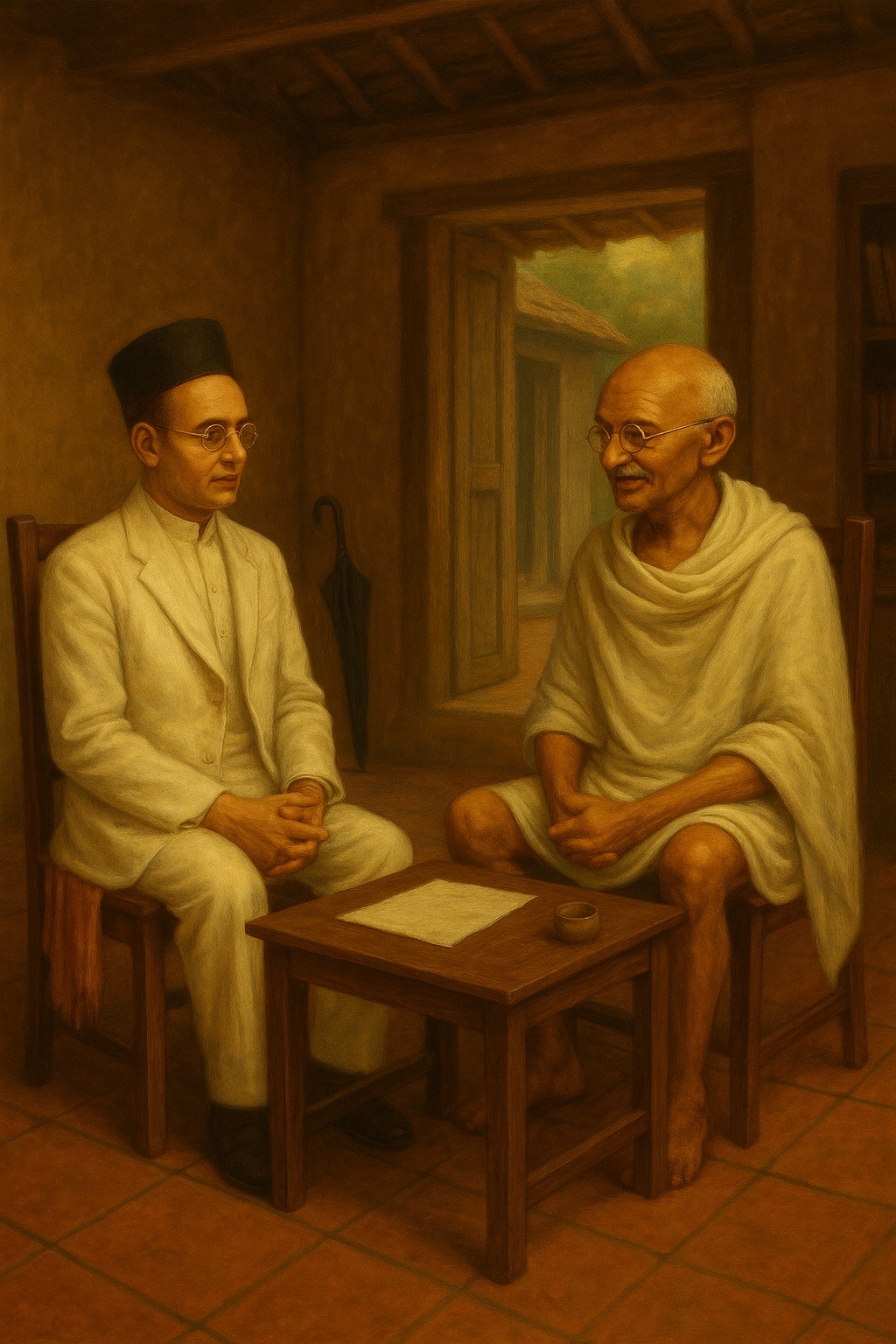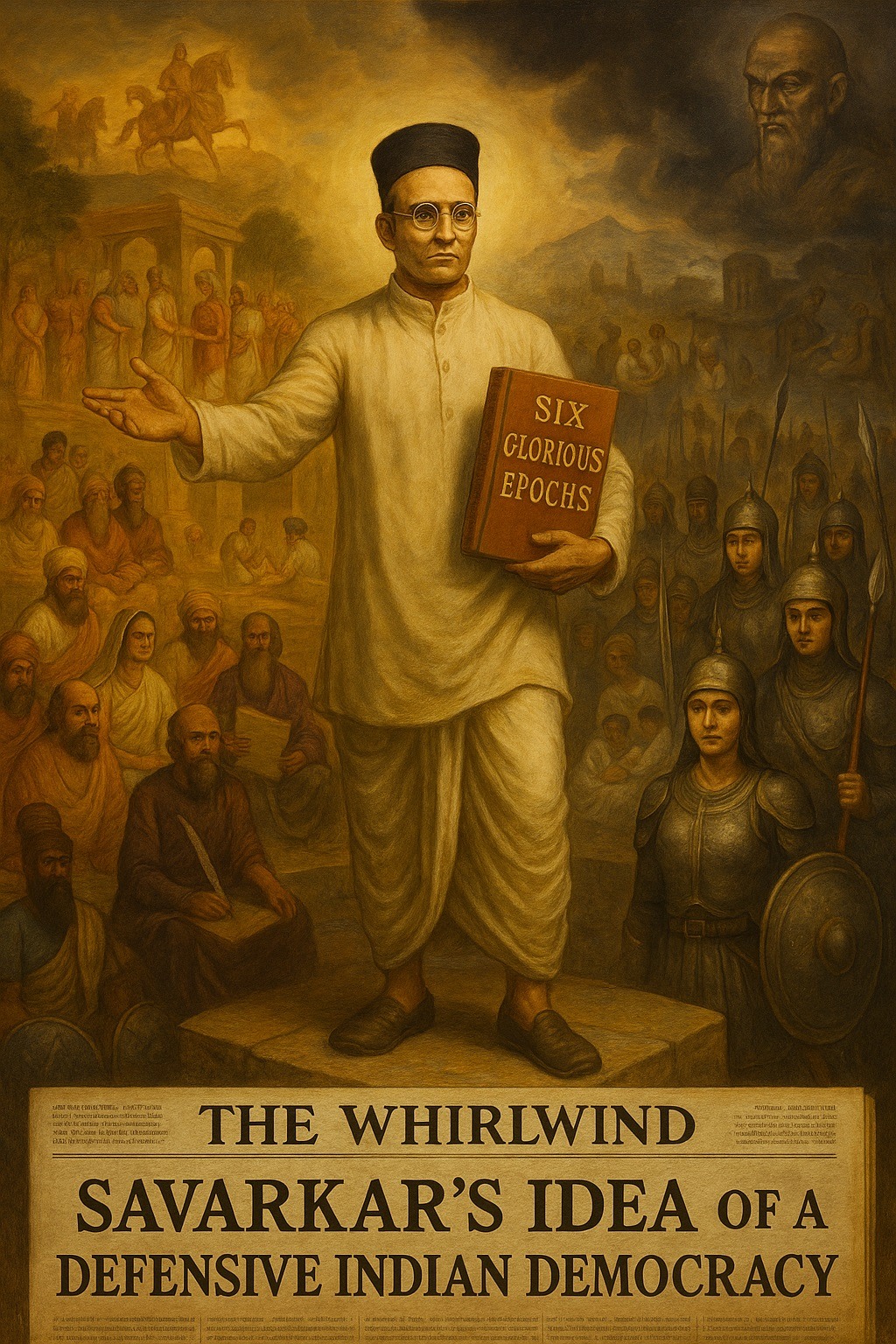Tag: Ahimsa
-
Political Dimension of Hindutva, Part 13 Introduction – A Justification of “Relative Violence” Violence and non-violence have long been central themes in Indian philosophical and political thought. Vinayak Damodar (Veer) Savarkar, a key proponent of Hindutva, presented a unique discourse on the subject, arguing for a pragmatic approach to violence—what he termed “just, relative violence.”…
-
Political Dimension of Hindutva, Part 12 Introduction – Savarkar’s Radical Philosophy of Resistance Few statements in modern Indian political thought are as provocative as Vinayak Damodar (Veer) Savarkar’s declaration that relative non-violence is a virtue, absolute non-violence a crime. This concise yet explosive maxim captures the essence of Savarkar’s departure from the dominant ‘Gandhian ethos’…
-
Political Dimension of Hindutva, Part 11 The idea of a “holy war,” known as Dharma Yuddha, against the enemies of Hindutva – particularly non-Hindu occupiers of the land – was a fundamental principle shaping Vinayak Damodar (Veer) Savarkar from his early youth. He derived this concept from the Bhagavad Gita, which speaks of the divine…
-
Every year on October 2, India observes Gandhi Jayanti, the birth anniversary of Mohandas Karamchand Gandhi—revered as the Mahatma and remembered worldwide as an apostle of non-violence. Yet this day also invites a provocative question: if Vinayak Damodar (Veer) Savarkar were alive today, would he have commemorated Gandhi Jayanti? Respect Without Reverence It is conceivable…
-
Political Dimension of Hindutva, Part 8 The political ideas of Vinayak (Veer) Damodar Savarkar cannot be clearly assigned to a specific model of governance. However, with the transformation of British India into the independent Indian Union, democratic concepts increasingly became the focus of his thinking. In his final work, Six Glorious Epochs of Indian History,…






